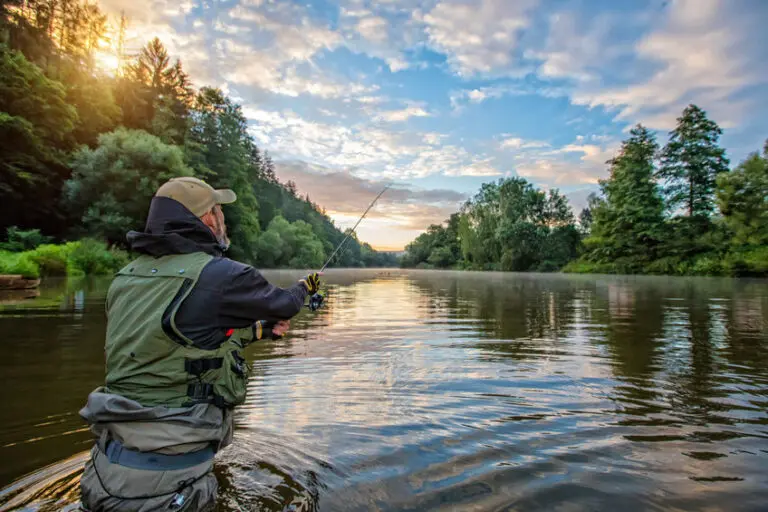Blog
Thnig we must avoid during fishing

- Introduction:
Why It’s Important to Avoid Common Mistakes When Fishing
Fishing is a beloved pastime for many, offering a chance to connect with nature and relax. However, there are certain things that we must avoid in order to protect our environment and ensure the sustainability of our fisheries. From leaving trash behind to overfishing certain species, there are several actions that can harm the delicate balance of our ecosystems. This blog will explore the things we must avoid during fishing in order to preserve our oceans and marine life for future generations to enjoy. Let’s fish responsibly and with respect for our environment.
- The Dangers of Overfishing: Why Sustainable Practices Matter
As much as we cherish the thrill of a big catch, it’s vital to recognize the repercussions of overfishing. Depleting marine populations can have severe consequences on aquatic ecosystems and biodiversity. By practicing sustainable fishing techniques like catch-and-release, adhering to size limits, and supporting responsible fishing practices, we can help conserve our precious marine resources for future generations. Let’s prioritize sustainability and ensure that our fishing adventures contribute positively to the delicate balance of nature. Let’s fish responsibly and safeguard the oceans that provide us with endless joy and nourishment. - Understanding Local Regulations: Avoiding Legal Issues in Fishing
It is essential to understand and adhere to local fishing regulations to avoid legal issues and protect our marine resources. Make sure to familiarize yourself with catch limits, size restrictions, and designated fishing areas. By respecting these regulations, we not only ensure the sustainability of our fisheries but also contribute to the conservation of our aquatic ecosystems. Stay informed and compliant with local laws to enjoy fishing responsibly and protect our precious marine life. Let’s be responsible anglers and safeguard the future of our oceans. - Choosing the Right Gear: Common Pitfalls in Tackle Selection
When it comes to fishing, choosing the right gear is crucial to ensuring a successful and ethical angling experience. Using the wrong equipment can harm fish unnecessarily or result in lost catches. Avoid overloading your tackle box with unnecessary gadgets and instead focus on quality essentials that match the type of fish you’re targeting. Select the appropriate line weight, hooks, and lures to minimize harm to fish and enhance your chances of a successful catch. By carefully selecting your gear, you not only improve your fishing skills but also show respect for the marine environment and the fish you aim to catch. Let’s prioritize responsible gear selection and conservation in our fishing practices. - Being Mindful of the Environment: How Poor Practices Hurt Ecosystems
As passionate anglers, it is our responsibility to always consider the impact of our actions on the environment. Engaging in poor fishing practices not only harms the very ecosystems we cherish but also jeopardizes the future of marine life. Overfishing, using destructive techniques, and leaving behind litter can disrupt the delicate balance of marine ecosystems and endanger the sustainability of fish populations. By being mindful of our surroundings, respecting catch limits, properly disposing of waste, and following conservation guidelines, we can contribute to the preservation of our precious marine environments. Let’s fish with care and ensure that our love for the sport does not come at the expense of our planet’s well-being. - Ignoring Weather Conditions: How It Affects Your Fishing Trip
Fishing trips are not just about reeling in the catch; they are also about embracing the elements of nature. Ignoring weather conditions can not only dampen your fishing experience but can also pose significant risks. Being ill-prepared for sudden storms, strong winds, or extreme temperatures can jeopardize your safety and the success of your trip. It is essential to stay informed about the weather forecasts, pack appropriate gear, and have a backup plan in case conditions take a turn for the worse. Remember, respecting nature’s power is crucial for a rewarding and safe fishing adventure. - Conclusion: Embracing Responsible Fishing for Future Generations
In conclusion, it’s our duty as avid anglers to protect our marine environments and preserve the delicate balance of nature. By avoiding overfishing, respecting size limits, and adopting sustainable fishing practices, we can ensure that future generations can also enjoy the beauty and abundance of our oceans. Let’s take the necessary steps to fish responsibly and make a positive impact on the biodiversity and sustainability of our aquatic ecosystems. Together, we can be stewards of the seas, safeguarding them for the prosperity and well-being of all. Let’s commit to responsible fishing practices and leave a legacy of conservation for the generations to come.
